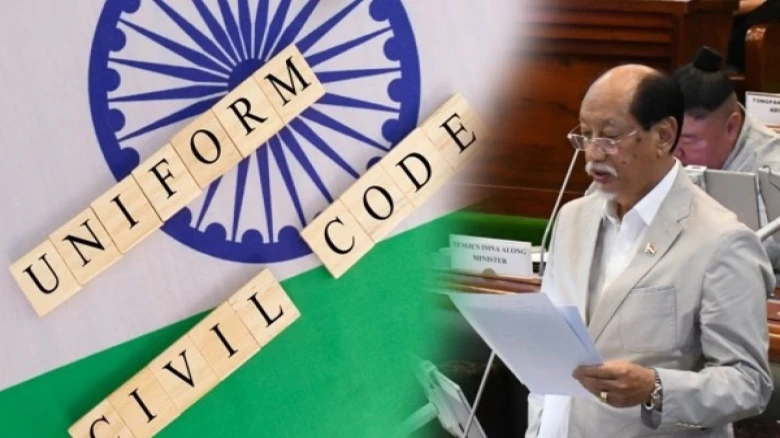The Nagaland legislative assembly's 14th house unanimously votes to exempt the state from the proposed UCC enactment...
Digital Desk: The Nagaland Assembly passed a resolution on Tuesday strongly demanding that the state be exempted from the proposed Uniform Civil Code (UCC).
The 14th House of the Nagaland Legislative Assembly unanimously decides for exemption from the planned adoption of the UCC in its application to the State of Nagaland, Chief Minister Neiphiu Rio announced on the second day of the House's monsoon session.
It is to be mentioned that the second session of the 14th Nagaland Legislative Assembly began on September 12 at the Nagaland Legislative Assembly Secretariat in Kohima.
"The Nagaland government and Naga people believe that the UCC will pose a threat to Naga customary laws, social practises, and religious practises, which will be threatened by encroachment if the UCC is imposed," he added.
Furthermore, Neiphiu Rio referred to the UCC as a single law that governs all aspects of marriage and divorce, succession and inheritance, and adoption, as well as personal laws and practises. He further stated that the UCC should be exempted for the state of Nagaland based on the BEFR Act of 1873, the 9-Point Agreement of 1947, and the 16-Point Agreement of 1960.
According to him, the UCC's abundantly clear goal is to establish a single law on personal concerns such as marriage and divorce, custody and guardianship, adoption and maintenance, and succession and inheritance.
The government of Nagaland expressed opposition to the subject in a cabinet decision submitted to the Commission on July 4. Nagaland's unique history, including the pre-independence British era and the non-interference policy, as well as the Centre's commitment to social and religious practices and customary laws of the people, were all cited as reasons for opposition. Article 371A also provides constitutional guarantees, according to Rio.
CM Rio recalls during the state government's September 1 consultative meeting with various stakeholders on the subject of UCC, representatives of various Tribal Organisations and civil societies expressed their strong resentment and opposition to the idea of having UCC.
On February 21, 2020, the Government of India (GoI) appointed the 22nd Law Commission of India and extended its term till August 31, 2024. On June 14, 2023, it issued a public notice requesting thoughts and proposals from all stakeholders on the subject of having a UCC throughout India, he said.
According to Article 371A of the Constitution, no act of Parliament will apply to the state of Nagaland in a matter relating to religious or social practises of Nagas, Naga customary law and procedure administration of civil or criminal justice involving decisions according to Naga customary law, and ownership and transfer of land and its resources unless its Assembly decides so by resolution, he said.
On Monday, legislators deliberated on the ramifications of introducing UCC in the state, and Nagaland Speaker Sharingain Longkumer granted the administration permission to introduce a resolution on Tuesday. Longkumer brought the proposal to a vote, and it was passed overwhelmingly by voice vote with no amendments.
The Nagaland government, along with Civil Society Organisations (CSOs), have opposed the Uniform Civil Code (UCC) and Forest Conservation (Amendment) Act 2023, according to the Rising People's Party (RPP).
The party also applauded the state government's move to oppose UCC and FCA in a special session of the Nagaland Legislative Assembly.

Leave A Comment